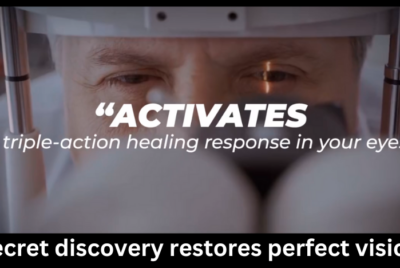Can Cataracts Come Back
Discover if cataracts can return after surgery. Learn prevention tips and treatment options for recurrent cataracts. Find answers here! Cataracts, one of the most common age-related eye conditions, affect millions of people worldwide. Understanding their nature, causes, and treatment options is essential, especially for those who have undergone cataract surgery. In this “Can cataracts come back?” article, we explore the possibility of cataracts returning post-surgery and discuss preventive measures and management strategies.
Introduction to Cataracts
Cataracts occur when the natural lens of the eye becomes cloudy, leading to blurry vision and if left untreated, blindness. While aging is the primary risk factor, other contributors include genetics, diabetes, smoking, and excessive UV exposure. Symptoms vary from mild blurred vision to significant impairment in daily activities.
Understanding Cataract Surgery
Cataract surgery is a highly successful procedure aimed at removing the cloudy lens and replacing it with an artificial intraocular lens (IOL). The surgery is typically performed on an outpatient basis, with minimal discomfort and rapid recovery. Success rates are high, with most patients experiencing significant improvements in vision post-surgery.
Factors influencing the success of cataract surgery include the patient’s overall health, the skill of the surgeon, and the type of IOL used. Modern advancements, such as laser-assisted cataract surgery and premium IOL options, have further improved surgical outcomes.
Can Cataracts Return After Surgery?
While cataract surgery is generally effective, there is a small risk of cataracts returning, known as posterior capsule opacification (PCO). PCO occurs when the posterior capsule of the lens becomes cloudy, causing symptoms similar to those of cataracts, such as blurry vision and glare sensitivity.
Several factors contribute to the development of PCO, including age, underlying eye conditions, and the type of IOL implanted during surgery. However, the risk of PCO recurrence is relatively low, occurring in approximately 10-20% of cases within five years post-surgery.
Prevention Measures
While cataract recurrence cannot always be prevented, specific lifestyle changes can help reduce the risk. Maintaining a healthy diet rich in antioxidants, vitamins, and minerals is essential for overall eye health. Regular exercise and avoiding smoking can also lower the risk of developing cataracts and other eye conditions.
Furthermore, routine eye check-ups are crucial for early detection and timely intervention. Eye exams can detect changes in vision and eye health, allowing for prompt treatment if cataracts or other issues arise.
Managing Recurrent Cataracts
If cataracts do return after surgery, prompt evaluation by an ophthalmologist is necessary to determine the appropriate course of action. Symptoms of PCO may include gradual worsening of vision, glare sensitivity, and difficulty with night vision.
Fortunately, treatment options are available to address PCO and restore clear vision. YAG laser capsulotomy is a common and effective procedure that involves using a laser to create an opening in the cloudy posterior capsule, allowing light to pass through and improving vision.
Tips for Healthy Eyes
In addition to undergoing cataract surgery and managing potential recurrences, adopting habits that promote overall eye health is essential. Consuming a balanced diet that includes fruits, vegetables, and omega-3 fatty acids supports eye health and reduces the risk of cataracts and other eye conditions.
Protecting the eyes from harmful UV rays by wearing sunglasses with UV protection and hats when outdoors can also help prevent damage to the eyes. Additionally, practicing good eye hygiene, such as avoiding eye rubbing and maintaining proper contact lens care, can reduce the risk of infections and other eye-related issues.
Can Cataracts Come Back – Conclusion
In conclusion, while the recurrence of cataracts after surgery is possible, it is relatively rare. With advancements in surgical techniques and treatment options, the risk of cataracts returning can be minimized. Individuals can effectively manage cataracts and maintain clear vision by adopting a healthy lifestyle, attending regular eye check-ups, and seeking prompt medical attention if symptoms arise. Overall, while the possibility of cataracts coming back exists, proactive measures and timely interventions can significantly reduce the impact of this condition on one’s quality of life.
Please note that this article should not replace professional medical advice. Consult a healthcare professional for an accurate diagnosis and tailored treatment plan.
Frequently Asked Questions (FAQs)
How common is it for cataracts to return after surgery?
Cataract recurrence, known as posterior capsule opacification (PCO), occurs in approximately 10-20% of cases within five years post-surgery. However, the risk can be effectively managed with modern surgical techniques and treatments like YAG laser capsulotomy, minimizing the impact on vision.
Can lifestyle changes help prevent cataract recurrence?
Adopting a healthy lifestyle, including a balanced diet rich in antioxidants, regular exercise, and avoiding smoking, can lower the risk of cataract recurrence. These lifestyle changes support overall eye health and reduce the likelihood of developing complications such as posterior capsule opacification (PCO).
What are the symptoms of recurrent cataracts?
Symptoms of recurrent cataracts, also known as posterior capsule opacification (PCO), may include blurry vision, glare sensitivity, difficulty seeing at night, and a gradual worsening of vision over time. Prompt evaluation by an ophthalmologist is necessary if these symptoms occur post-cataract surgery.
Is there any way to prevent cataracts from forming in the first place?
While age-related cataracts are common, specific measures can help reduce the risk. Wearing sunglasses with UV protection, maintaining a nutritious diet rich in antioxidants, avoiding smoking, and attending regular eye check-ups can lower the likelihood of developing cataracts, promoting overall eye health and well-being.
How long does it take to recover from YAG laser capsulotomy?
YAG laser capsulotomy is a quick outpatient procedure with minimal downtime. Most patients experience improved vision almost immediately after the procedure. Recovery time is typically short, allowing individuals to resume their normal activities shortly after undergoing YAG laser capsulotomy.
Extra FAQs Related to Can Cataracts Come Back
Is it possible to get cataracts twice?
Yes, it’s possible to experience cataracts more than once, known as posterior capsule opacification (PCO) or “secondary cataracts.” This condition can occur after cataract surgery when the posterior capsule of the lens becomes cloudy. However, effective treatments like YAG laser capsulotomy can address PCO and restore clear vision.
Can cataract surgery be done twice on the same eye?
Cataract surgery can be performed multiple times on the same eye if needed. This may occur if complications arise after the initial surgery or if the cataract returns. However, repeat surgeries carry some risks, and the decision should be made in consultation with an ophthalmologist based on individual circumstances.
Why is my eye blurry 3 years after cataract surgery?
Blurry vision three years after cataract surgery could indicate posterior capsule opacification (PCO), a common condition where the capsule behind the intraocular lens becomes cloudy. This can be treated with a quick outpatient procedure called YAG laser capsulotomy, which restores clear vision by opening the cloudy capsule.
Can cataract lenses be replaced?
Yes, if complications arise or the vision needs further improvement after cataract surgery, the intraocular lens (IOL) can be replaced. This procedure, known as IOL exchange, involves removing and replacing the existing lens with a new one to address issues such as refractive errors or lens dislocation.
Can cataracts cause blindness?
If left untreated, cataracts can progress to the point of causing blindness. However, cataract surgery is a highly effective treatment that removes the cloudy lens and replaces it with an artificial one, restoring clear vision and preventing blindness caused by cataracts.




